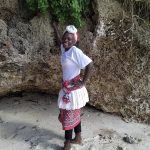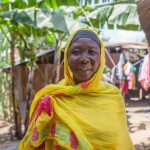Amani
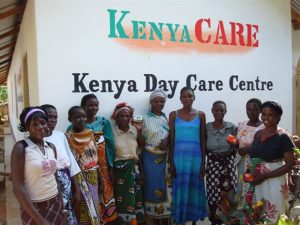 First group – in fact a pilot. Started in 2010 and graduated in 2015 (at that time we still had a 5-year programme. We later changed it to 4 years and 3 months). All women lived in the Mtwapa area; a satellite town next to Mombasa. Many people in this town come from the rural areas to Mombasa/Mtwapa to find their luck, but will find out that there is no work and many of them will end up in real poverty and to get food on the table they go into prostitution and/or drugs etc.
First group – in fact a pilot. Started in 2010 and graduated in 2015 (at that time we still had a 5-year programme. We later changed it to 4 years and 3 months). All women lived in the Mtwapa area; a satellite town next to Mombasa. Many people in this town come from the rural areas to Mombasa/Mtwapa to find their luck, but will find out that there is no work and many of them will end up in real poverty and to get food on the table they go into prostitution and/or drugs etc.
We started this group with 17 women. At that time, we only accepted single mothers, all HIV-positive. Later we found out that this was not working. So nowadays we accept all mothers (and even sometimes fathers) who are HIV positive and living below the poverty line.
One of the challenges in this group was the background of the women. Because of tribalism trust was an issue in the group. During the first 2 years 3 women left and 2 women joined a bit later.
Still this group made a big progress. They all learned a lot about how to live better with their disease HIV/aids and also their stigma decreased a lot, to an extend that they presented themselves to the local community as ‘Ambassadors of Hope’ with their own songs.
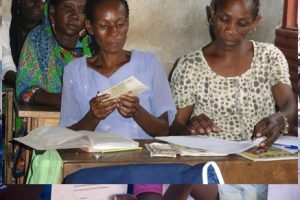
The group also did Merry Go Round (individual saving system) during the 5-year period. Each of them got individual loans for their businesses. We also started with a group saving system, but this group didn’t see the real advantages. Most probably also because the local staff didn’t have the focus on it yet. Unfortunately, 3 members died during the programme.
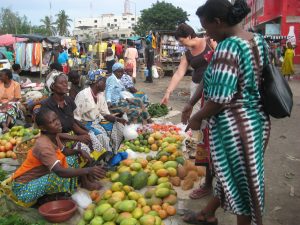
In this group there were 4 woman who started learning tailoring together and 3 others started a baking business together. The other women had all individual businesses. Most successful were Anne (catering and baking and after 5 years she had a real small supermarket) and Sera Dama (vegetables wholesale). The group also started a groups business in selling charcoal. This project was unfortunately not very successful, mostly due to differences in cultural background.In 2015 13 women graduated. Part of the group is still meeting (2021) on a regular basis. They all can manage their family and it is very clear that they have lowered their stigma. Most of them are able to put food on the table every day and at least make sure their kids go to primary school.
Lessons learned:
– Start a group with at least 25 women (the maximum number for an official registered Self-Help Group in Kenya). There are always a few women that seem not to be very committed. They come to the first phase education, where we also provide a meal. But after the first phase, when they really must start doing things themselves, they leave. Over the years we learned that this is a percentage of 20%. We do not see this as a failure, as those members at least have learned a lot about their own health and ways to deal with their stigma. This also will help them to improve their lives. This is also what the women told us later.
– The first group we selected the members as an organization. We did the interviews and checked whether the women met the criteria and came from the same area. But we have learned that this doesn’t work, because of tribalism. So, from the second group on we have a different method of starting a group. We still do the interviews and checking. But the women themselves will form the group. We still see a big diversity in the group but at least the members respect each other.
– To put more effort on the group saving system, so that they learn the strength of a group effort.
When we started with this program, we didn’t help the mothers with payment of school fees. The idea was that we help them to start a small business and the profit of that business will help them to send the kids to school. Unfortunately, we quickly found out that we had been far too optimistic. Most women who start in our programme live from less than 2 dollar a day. In average they have 3-4 children. That means they hardly have one meal a day. After the women started their business, they indeed improved their income quite a bit, but not enough to provide for both food, school fees and health care. To get a stable income at that level it needs at least 2-3 years. Therefore, we introduced later the school fee programme for primary school education.

